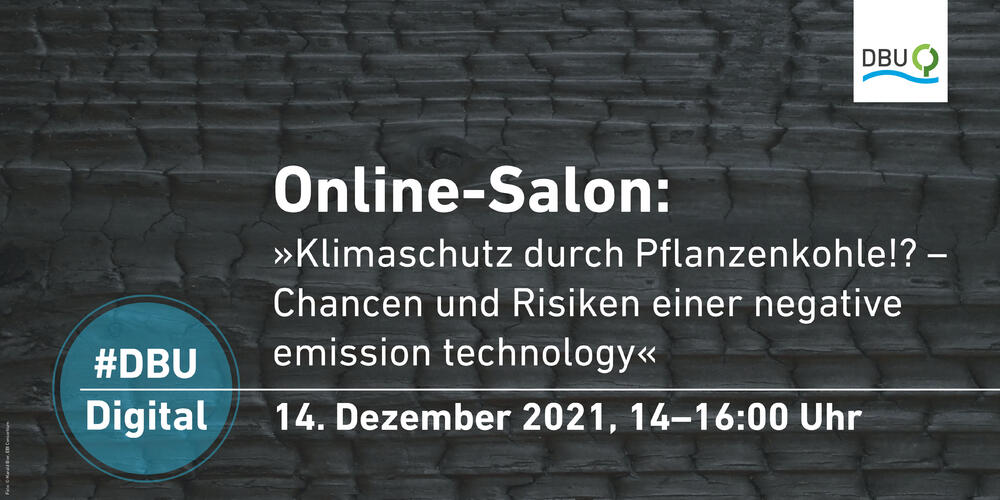DBU aktuell No. 1 | 2022 English
Information on Grant Support Activities of the German Federal Environmental Foundation (Deutsche Bundesstiftung Umwelt)
2.) Climate protection through plant carbon - #DBUdigital Online-Salon
Current climate protection scenarios of the IPCC show that limiting global warming to 1.5°C can no longer be achieved without actively removing greenhouse gases from the atmosphere. A comparatively quickly implementable strategy to obtain such so-called negative emissions is to carbonize biomass by pyrolysis and store the extracted plant carbon in the soil or other environmental media. Whether this use of plant carbon can be a solution for more climate protection was the topic of the #DBUdigital Online Salon "Climate protection through plant carbon!?" on December 14, 2021. Following the keynote speeches of the four speakers from science and industry, they discussed the pros and cons of plant carbon use.
Prof. Dr. Hansjörg Lerchenmüller, head of the European Biochar Industry Consortium e.V. and winner of the German Environmental Award 2012, emphasized that plant carbon would bring significant benefits for climate protection, as its use is already technically available and scalable. Prof. Dr. Claudia Kammann, head of the Institute for Applied Ecology at Geisenheim University of Applied Sciences, also highlighted the climate-protecting effect of plant carbon. Additional positive effects, such as the reduction of nitrous oxide emissions or also the reduction of nitrate leakage into the groundwater, should be used in a targeted manner. Well-considered use was also advocated by Karen Pittel, co-chair of the German Advisory Council on Global Change and head of the Ifo Center for Energy, Climate and Resources in Munich. She emphasized above all the need for suitable legal framework conditions so that the use of plant carbon is safe in the long term and the contribution to climate protection is sustainable. Dr. Axel Don, deputy director of the Thünen Institute for Agricultural Climate Protection in Braunschweig, noted that the biomass that serves as the basis for the plant carbon could also be used in other ways. Thus, he said, it must be thoroughly considered which form of use makes the most sense for climate protection.
The recording of the online salon can be watched here
Translated with www.DeepL.com/Translator (free version)


